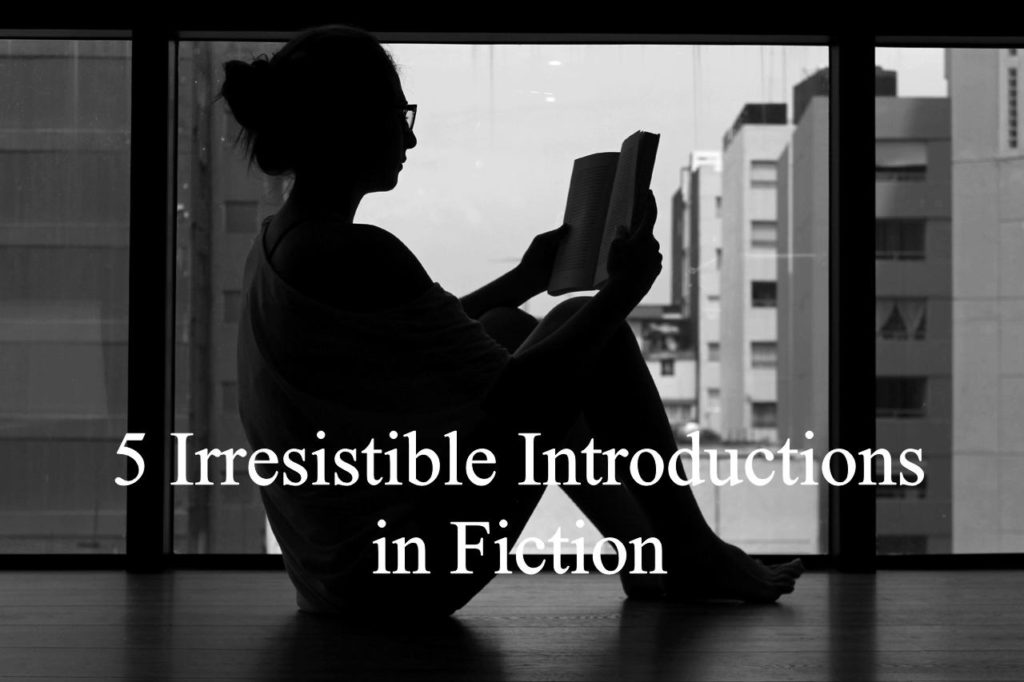Tips for Writers and Readers
Last night I dreamed I went to Manderley again.
—Rebecca by Daphne du Maurier
Read that sentence, one of the most famous first sentences in literature, aloud. Notice its cadence. The rhythm lulls you toward sleepiness—appropriate for a dream. And the rest of the book hinges on that final word, again. “Why again?” we wonder. “What happened during the other time or times at Manderley?” “Is Manderley only a dream now, and, if so, why?”
A good introduction piques readers’ interest and compels them to keep reading.
Charles Dickens was a master of grand openings:
A Tale of Two Cities:
It was the best of times, it was the worst of times, it was the age of wisdom, it was the age of foolishness, it was the epoch of belief, it was the epoch of incredulity, it was the season of Light, it was the season of Darkness, it was the spring of hope, it was the winter of despair, we had everything before us, we had nothing before us …
David Copperfield:
Whether I shall turn out to be the hero of my own life, or whether that station will be held by anybody else, these pages must show. To begin my life with the beginning of my life, I record that I was born (as I have been informed and believe) on a Friday, at twelve o’clock at night.
A Christmas Carol:
Marley was dead, to begin with. There is no doubt whatever about that.
Most readers say that they evaluate whether to read a book by looking at the first sentence. Writers have maybe five seconds to capture potential readers’ attention. If the opening sentence doesn’t somehow do that, readers will put that book back on the shelf and pick up another one.
Good introductions grab readers immediately by involving them in the story. Effective introductions make readers ask questions and keep turning the pages to find out the answers. There is no formula for an irresistible introduction, but readers know one when they encounter it.
Here are five more examples of introductions that grabbed me and refused to let me go.
Emma by Jane Austen
Emma Woodhouse, handsome, clever, and rich, with a comfortable home and happy disposition, seemed to unite some of the best blessings of existence; and had lived nearly twenty-one years in the world with very little to distress or vex her.
Like the opening of Rebecca, the soothing poetic meter of the first part of this introduction draws readers in and underscores the harmony of Emma Woodhouse’s life. However, the second part suggests that changes are coming. I need to keep reading to see what will happen to distress or vex Emma.
The Brass Verdict by Michael Connelly
Everybody lies.
Cops lie. Lawyers lie. Witnesses lie. The victims lie.
A trial is a contest of lies. And everybody in the courtroom knows this.
In my heart I know that even the most honest person will lie under certain circumstances. But this opening turns upside down my expectation that justice involves a trial in which witnesses vow to tell “the truth, the whole truth, and nothing but the truth.” I must see how how everyone in this case is going to lie and how a trial in which everybody lies will turn out.
Mind Prey by John Sandford
The storm blew up late in the afternoon, tight, gray clouds hustling over the lake like dirty, balled-up sweat socks spilling from a basket.
Here weather imagery sets the mood: threatening weather suggests ominous happenings coming up. And when the conditions smell like “dirty, balled-up sweat socks,” I know that nothing good can possibly happen.
Behind the Scenes at the Museum by Kate Atkinson
I EXIST! I am conceived to the chimes of midnight on the clock on the mantelpiece in the room across the hall.
A first-person narrator who observes her own conception can only take me to dizzying places. I want to continue reading to see what else she has in store for me.
The Book of Ruth by Jane Hamilton
What it begins with, I know finally, is the kernel of meanness in people’s hearts. I don’t know exactly how or why it gets inside us; that’s one of the mysteries I haven’t solved yet.
Not only do I want to learn about “the kernel of meanness in people’s hearts,” but I want to hear the story of how the narrator discovers this truth that he or she finally knows. Maybe what I learn here will teach me about human nature, or “exactly how or why [the kernel of meanness] gets inside us.”
© 2017 by Mary Daniels Brown

